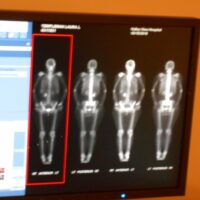What is the Minimum Bodily Injury Coverage in Tennessee?

Tennessee drivers must have at least the state-mandated minimal liability coverage to drive legally. That includes insurance for medical care for injuries caused in an accident. Failure to have this coverage and inability to prove you have it can result in a fine of up to $100 and the suspension of your license and vehicle registration.
Car accident lawyer Aaron Hicks helps Tennessee clients cope with their severe physical injuries, medical bills, psychological harm, lost income, and wrecked cars. The car accident Hicks Law Firm can be part of your team putting your life back together.
Call our office today at (615) 200-0084 or fill out our contact form to schedule a free consultation with Nashville car accident lawyer Aaron Hicks about your accident.
What is Car Insurance?
In exchange for paying premiums, car insurance protects you and your family financially if you’re in an accident or have a covered loss due to theft, fire, theft, an act of nature, or vandalism. Some coverages only apply if you cause an accident. Others pay when you’re not at fault. They may pay medical bills or reimburse you for property loss or vehicle repair.
There are limits on what the insurance company must pay, and some accident coverage is excluded. If you intentionally crash your car, have an accident with it while committing a crime, or use it for business and not personal reasons, the resulting liabilities may not be covered.
What Coverage is Mandatory in Tennessee?
The required minimum limit for your liability car insurance bodily injury coverage is $25,000 per person, with a maximum of $50,000 per accident. You must also carry $15,000 coverage to pay for damage to another person’s property.
Liability coverage will provide a legal defense if you’re sued because you injured someone or damaged their property in an accident. Bodily injury coverage protects your assets if you’re legally responsible for a collision, including some expenses that would come with bodily harm suffered by other parties.
What Other Types of Coverage are Available?
Optional coverage includes:
- Comprehensive: This may pay for vehicle repairs or replacement in non-collision-related incidents like fire, theft, vandalism, contact with animals, and glass breakage
- Collision: This can repair your vehicle after you hit an object or another vehicle
- Uninsured/underinsured motorist: This provides coverage if you have an accident with another party who’s at fault and has no insurance or not enough to cover your losses. This coverage can also be used if you’re the victim of a hit-and-run accident where the other vehicle leaves the scene and you don’t know who the driver is or their insurance coverage
- Medical benefits: They should cover necessary and reasonable medical expenses or funeral costs for you and others covered by your policy. This would apply no matter who’s at fault in the an accident and up to the amount you choose
This coverage may make sense depending on your budget and vehicle age.
How Much Coverage Should I Buy?
When determining how much liability coverage to buy, Nerdwallet suggests you start by considering your net worth. It’s the value of your property and assets less your liabilities and debts.
That’s an important factor because if you’re found liable for an accident that caused $200,000 worth of bodily injury and you only have $50,000 in coverage, your carrier is obligated to pay only that amount. If you have $150,000 in home equity, vehicles, investments, and bank accounts, you could potentially lose all that to satisfy a court judgment.
Vehicle insurance protects your financial security. Having insurance that’s at least equal to your net worth means it should cover the cost of an accident without risking your home and other assets. You may consider buying coverage beyond your net worth because high jury verdicts are becoming more common. If the verdict is beyond your coverage limit, you must pay for it yourself.
You should consider “full coverage,” which is liability coverage plus comprehensive and collision insurance, especially if you have a newer or more expensive car. These coverage types pay to repair damage to your vehicle, no matter who’s at fault. Collision coverage is for damage from striking another vehicle, and comprehensive coverage covers things out of your control (theft, vandalism, or fire).
You can balance the cost of “full coverage” and the deductible (how much of the repair or replacement you’ll pay for before coverage kicks in). The higher the deductible, the lower the premium.
Given the high number of underinsured and uninsured drivers on the road, purchasing that coverage could be well spent. You would make a claim on your own policy to cover these situations.
You can Trust Nashville’s Car Accident Attorney Aaron Hicks
If you’re injured in an accident in Tennessee, Aaron Hicks and the Hicks Law Firm will help you in any way they can. He is an experienced car accident lawyer representing injured clients throughout the state.
Aaron Hicks has represented many accident victims in the Nashville area and looks forward to helping you, too. Call us at (615) 200-0084 or complete our online contact form so our team of car accident attorneys in Nashville can discuss your case before the state’s one-year statute of limitations comes close to expiring.

Aaron Hicks is a civil trial attorney and founder of Hicks Law Firm, based in Orange County with offices in San Diego and Tennessee. His practice includes representing plaintiffs in personal injury cases including motor vehicle accidents, premises liability, dog bites and wrongful death. Mr. Hicks is and AV Rated attorney, Super Lawyer and is currently on the Board of Directors of the Orange County Trial Lawyers Association where he serves as 1st Vice President.

